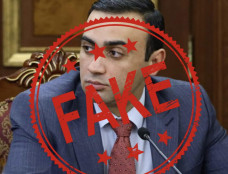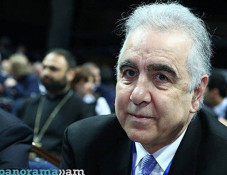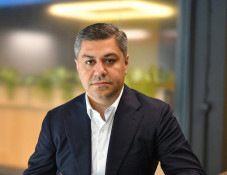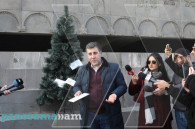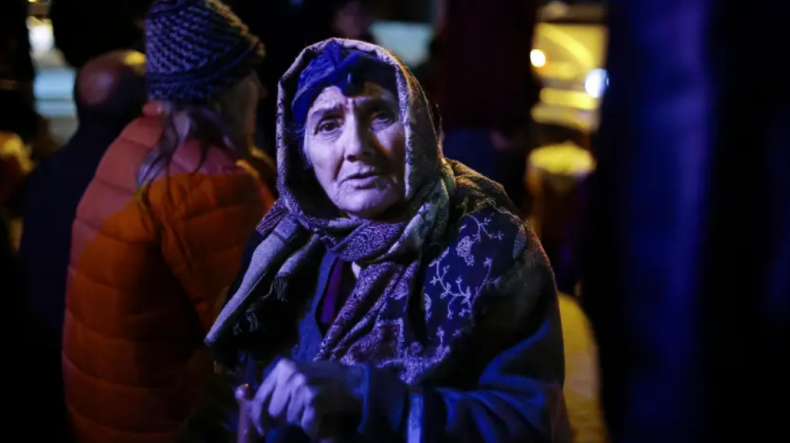
Thomas Becker: Ethnic cleansing in our time in Nagorno-Karabakh
By Thomas Becker, Legal and Policy Director of the University Network for Human Rights
The story was originally published on Hartford Courant
We should not look away from the images of horror. People fleeing their homes. Asymmetrical warfare. Shortages of food and medicine. Innocents dying. Am I talking about the Middle East, or perhaps Sudan? Nope. My story of epic suffering happened recently on the periphery of Europe.
Just over a year ago, the government of Azerbaijan using purported “eco-activists” launched a blockade of the Lachin Corridor, the only road between Armenia and the contested region of Nagorno-Karabakh. Despite warnings, the world largely treated the act as innocuous. Nine months later, however, nearly all 120,000 ethnic Armenian inhabitants have been ethnically cleansed from the disputed territory. And the Azerbaijani forces carried it out in only five days.
Nagorno-Karabakh does not hold the world’s attention as some other conflicts do, but the dispute over the territory has been tragic nonetheless. Nagorno-Karabakh is a contested region in the Caucasus located between Armenia and Azerbaijan that was, until only months ago, controlled by ethnic Armenian majority.
In September 2020, Azerbaijan launched an attack on Nagorno-Karabakh, triggering a 44-day war that shifted control over parts of the territory to Azerbaijan. Despite an internationally negotiated ceasefire, Azerbaijan continued to subject ethnic Armenians in the region to torture, illegal detentions, extrajudicial killings, and disappearances. It upped its assault by enacting a brutal and illegal blockade of the Lachin Corridor that starved and suffocated Nagorno-Karabakh’s indigenous and captive population before it launched a full-blown military offensive in September 2023, forcing nearly all of Nagorno-Karabakh’s inhabitants to flee to Armenia in under a week.
In the weeks leading up to the extermination, we at the University Network for Human Rights (UNHR) presented a briefing paper to U.S. officials and a submission to the United Nations warning of the impending ethnic cleansing. Around the same time, the first UN Special Advisor on the Prevention of Genocide and the founding Chief Prosecutor of the International Criminal Court issued separate reports warning of the genocidal implications of Azerbaijan’s actions. Weeks later, our fears materialized. The world was shocked.
But for many in the region, like a young survivor, who, for security, I will refer to only by his first name, Mels, the path to ethnic cleansing of Armenians in Nagorno-Karabakh had been paved for years.
Azerbaijani forces kidnapped Mels in Nagorno-Karabakh in December 2020 and for 10 months tortured him with bats and chains, starved him, and forced him to chant “Karabakh is Azerbaijan” and “Glory to the president of Azerbaijan.” Unaware if he was alive, Mels’ grandmother prayed for his return. The Red Cross eventually facilitated this, but the day he came home, 30 pounds lighter and unrecognizable, she died.
Mels is one of the roughly 150 Armenian victims of atrocities UNHR interviewed in Armenia and Nagorno-Karabakh over the past three years. Our team, including lawyers, academics, and students from Harvard, Oxford, UCLA, Wesleyan, and Yale, spent hundreds of hours collecting the stories of victims and their families, which we present in a report we published this week, on the blockade’s anniversary, entitled “We are No One”: How Three Years of Atrocities Against Ethnic Armenians Led to Ethnic Cleansing. In it, we document how the ethnic cleansing of Nagorno-Karabakh unfolded.
For those of us who work in human rights, the intention to commit ethnic cleansing in Nagorno-Karabakh has been on full display for years: one need look only as far as the public statements of the leadership in Azerbaijan to understand its goals.
Azerbaijan’s authoritarian president Ilham Aliyev has called ethnic Armenians “barbarians and vandals” who are infected by a “virus” for which they “need to be treated,” and he has flaunted his territorial aspirations: “Present-day Armenia is our land…Now that the Karabakh conflict has been resolved, this is the issue on our agenda.” Other officials have referred to Armenia as a “cancerous tumor” and Armenians as a “disease,” calling for “complete elimination of Armenians.”
With such open violent and hateful rhetoric receiving almost no condemnation, it is difficult not to feel cynicism as the world just finished commemorating the 75th anniversary of the Universal Declaration of Human Rights, created in response to the ethnic cleansing of Jews by the Nazis.
Instead of performative celebrations or mere statements by the international community, leaders who carry out these crimes must be held to account. But our institutions have failed Armenians in Nagorno-Karabakh as they indeed fail others. We must act now to strengthen and democratize the global institutions charged with preventing genocide. If we don’t expose and reckon with these recent failures, we will inevitably see them again – perhaps in southern Armenia, Azerbaijan’s stated next target.
Newsfeed
Videos










